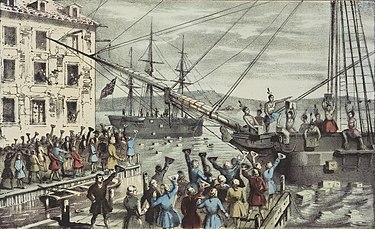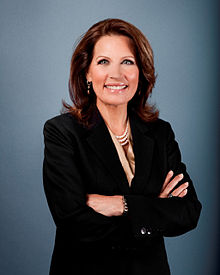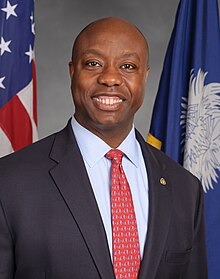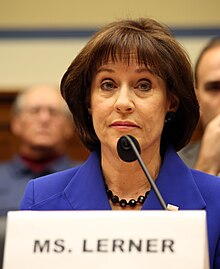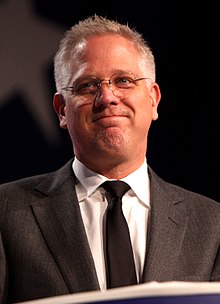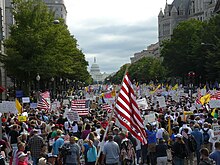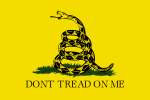Tea Party movement
Defunct Newspapers Journals TV channels Websites Other Congressional caucuses Economics Gun rights Identity politics Nativist Religion Watchdog groups Youth/student groups Social media Miscellaneous Other The Tea Party movement was an American fiscally conservative political movement within the Republican Party that began in 2007, catapulted into the mainstream by Congressman Ron Paul’s presidential campaign.
[43] Even though the groups participating in the movement have a wide range of different goals, the Tea Party places its view of the Constitution at the center of its reform agenda.
[59] In the Senate, three Tea Party backed Republicans, Jim DeMint, Mike Lee and Michael Crapo, voted to limit foreign aid to Libya, Pakistan and Egypt.
Tea Party activists have expressed support for Republican politicians Sarah Palin, Dick Armey, Michele Bachmann, Marco Rubio, and Ted Cruz.
[92] Fox News Channel commentator Juan Williams has said that the Tea Party movement emerged from the "ashes" of Ron Paul's 2008 presidential primary campaign.
[93] Indeed, Ron Paul has stated that its origin was on December 16, 2007, when supporters held a 24-hour record breaking, "moneybomb" fundraising event on the Boston Tea Party's 234th anniversary,[94] but that others, including Republicans, took over and changed some of the movement's core beliefs.
[95][96] Writing for Slate.com, Dave Weigel has argued in concurrence that, in his view, the "first modern Tea Party events occurred in December 2007, long before Barack Obama took office, and they were organized by supporters of Rep. Ron Paul," with the movement expanding and gaining prominence in 2009.
Journalist Joshua Green has stated in The Atlantic that while Ron Paul is not the Tea Party's founder, or its culturally resonant figure, he has become the "intellectual godfather" of the movement since many now agree with his long-held beliefs.
[123] Overnight, websites such as "ChicagoTeaParty.com" (registered in August 2008 by Chicagoan Zack Christenson, radio producer for conservative talk show host Milt Rosenberg) were live within 12 hours.
[57] Activism by Tea Party people against the major health-care reform law from 2009 to 2014 has, according to the Kansas City Star, focused on pushing for Congressional victories so that a repeal measure would pass both houses and that President Obama's veto could be overridden.
[57] Aside from rallies, some groups affiliated with the Tea Party movement began to focus on getting out the vote and ground game efforts on behalf of candidates supportive of their agenda starting in the 2010 elections.
[154] According to the Treasury Inspector General for Tax Administration, 18% of the conservative groups that had Tea Party or other related terms in their names flagged for extra scrutiny by the IRS had no evidence of political activity.
[155] Michael Hiltzik, writing in the Los Angeles Times, stated that evidence put forth in the House report indicated the IRS had been struggling to apply complicated new rules to nonprofits that may have been involved in political activity, and had also flagged liberal-sounding groups.
[157] After a two-year investigation, the Justice Department announced in October 2015 that "We found no evidence that any IRS official acted based on political, discriminatory, corrupt, or other inappropriate motives that would support a criminal prosecution.
Martin stated after the election that "with the victory of Donald Trump, the values and principles that gave rise to the tea party movement in 2009 are finally gaining the top seat of power in the White House.
[168] A shift in the operational approach used by the Tea Party has also affected the movement's visibility, with chapters placing more emphasis on the mechanics of policy and getting candidates elected rather than staging public events.
Social media accelerated the spread of such conspiratorial beliefs, which further dissolved trust in established institutions and objective truth....the tea party never really died; its energies were reactivated with the presidential campaign of Donald Trump — who of course was the leading purveyor of birtherism.....both the tea party and Trump's movement also were rooted in fact-free conspiracy theories about the treachery of Democrats and elites, who allegedly plotted to destroy the livelihoods and traditions of "real Americans" for their own benefit.
A New York Times/CBS News Poll during the election revealed that only a small percentage of Tea Party supporters considered global warming a serious problem, much less than the portion of the general public that does.
FreedomWorks, Americans for Prosperity, and DontGo, a free market political activist non-profit group, were guiding the Tea Party movement in April 2009, according to The Atlantic.
[229] Following the formation of the Tea Party Caucus, Michele Bachmann raised $10 million for a political action committee, MichelePAC, and sent funds to the campaigns of Sharron Angle, Christine O'Donnell, Rand Paul, and Marco Rubio.
[248] A Rasmussen Reports poll conducted in April 2012 showed 44% of likely U.S. voters held at least a somewhat favorable view of Tea Party activists, while 49% share an unfavorable opinion of them.
[260] Grant Barrett, co-host of the A Way with Words radio program, has listed teabagger as a 2009 buzzword meaning, "a derogatory name for attendees of Tea Parties, probably coined in allusion to a sexual practice".
[265] On April 29, 2009, Obama commented on the Tea Party protests during a townhall meeting in Arnold, Missouri: "Let me just remind them that I am happy to have a serious conversation about how we are going to cut our health care costs down over the long term, how we're going to stabilize Social Security.
[284] Howard Kurtz has said that, "These [FOX] hosts said little or nothing about the huge deficits run up by President Bush, but Barack Obama's budget and tax plans have driven them to tea.
"[285] In the January/February 2012 issue of Foreign Affairs, Francis Fukuyama stated that the Tea Party is supporting "politicians who serve the interests of precisely those financiers and corporate elites they claim to despise" and inequality while comparing and contrasting it with the occupy movement.
[286][287] In October 2010, a survey conducted by The Washington Post found that the majority of local Tea Party organizers consider the media coverage of their groups to be fair.
Many in the movement would prefer the complex social issues such as homosexuality, abortion, and religion to be left out of the discussion, while instead increasing the focus on limited government and states' rights.
Professor Formisano sees underlying social roots and draws a parallel between the tea party movement and past support for independent candidate Ross Perot,[292] a similar point to that made in Forbes as mentioned earlier.
[24] The final round of debate before voting on the health care bill was marked with vandalism and widespread threats of violence to at least ten Democratic lawmakers across the country, which created public relations problems for the fledgeling Tea Party movement.
On March 22, 2010, in what the New York Times called "potentially the most dangerous of many acts of violence and threats against supporters of the bill," a Lynchburg, Virginia Tea Party organizer and the Danville, Virginia Tea Party Chairman both posted the home address of Representative Tom Perriello's brother (mistakenly believing it was the Congressman's address) on their websites, and encouraged readers to "drop by" to express their anger against Representative Perriello's vote in favor of the healthcare bill.

